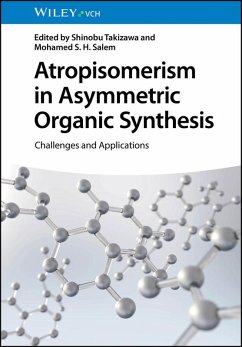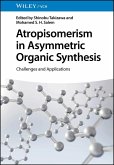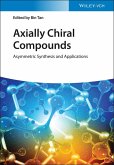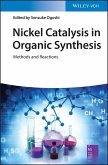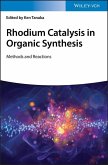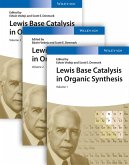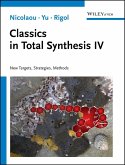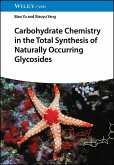Unique overview of the recent synthetic methodologies of the atropisomeric molecules and their numerous practical applications
Atropisomerism in Asymmetric Organic Synthesis: Challenges and Applications presents new methodologies, strategies, unique catalysts, and solutions to challenges in the area of oxidative heterocoupling. After a general introduction for the concept of atropisomerism, this book focuses on the recent advances in the atroposelective synthesis of axially chiral compounds and how these advances had a significant impact on several applications in asymmetric catalysis and the synthesis of natural products.
The book covers the recent examples of metal-catalyzed (Cu, Fe, Ru, V, etc) and organocatalyzed atroposelective syntheses of axially chiral compounds using diverse approaches, including cross-coupling reactions, ring-opening reactions, formation of new aromatic rings, and desymmetrization via functional group transformation. The impact of these efficient strategies on various applications in asymmetric catalysis, total synthesis of natural products, synthesis of polycyclic heteroaromatics (PHAs), and the drug industry is also addressed.
Edited by two highly qualified academics, Atropisomerism in Asymmetric Organic Synthesis explores sample topics including:
Enabling readers to comprehensively understand the development history, research status, and potential of atropisomeric synthesis, Atropisomerism in Asymmetric Organic Synthesis is an essential, up-to-date reference for researchers and scientists in the field.
Atropisomerism in Asymmetric Organic Synthesis: Challenges and Applications presents new methodologies, strategies, unique catalysts, and solutions to challenges in the area of oxidative heterocoupling. After a general introduction for the concept of atropisomerism, this book focuses on the recent advances in the atroposelective synthesis of axially chiral compounds and how these advances had a significant impact on several applications in asymmetric catalysis and the synthesis of natural products.
The book covers the recent examples of metal-catalyzed (Cu, Fe, Ru, V, etc) and organocatalyzed atroposelective syntheses of axially chiral compounds using diverse approaches, including cross-coupling reactions, ring-opening reactions, formation of new aromatic rings, and desymmetrization via functional group transformation. The impact of these efficient strategies on various applications in asymmetric catalysis, total synthesis of natural products, synthesis of polycyclic heteroaromatics (PHAs), and the drug industry is also addressed.
Edited by two highly qualified academics, Atropisomerism in Asymmetric Organic Synthesis explores sample topics including:
- Iron- and ruthenium-catalyzed atroposelective synthesis of axially chiral compounds and the catalytic applications of multinuclear zinc complexes with axially chirality
- Vanadium-catalyzed atroposelective coupling of arenols and application in the synthesis of polycyclic heteroaromatics PHAs
- Mechanisms of atroposelective Suzuki-Miyaura coupling towards axially chiral biaryls and organocatalytic enantioselective formation of atropisomers
- Synthesis of atropisomers via enantioselective ring-opening reactions and the impact of axially chiral ligands and catalysts derived from atropisomeric binaphthyl structures
- Binaphthyl-based chiral DMAP derivatives in enantioselective transformations and catalytic atroposelective oxidative coupling in natural product synthesis
Enabling readers to comprehensively understand the development history, research status, and potential of atropisomeric synthesis, Atropisomerism in Asymmetric Organic Synthesis is an essential, up-to-date reference for researchers and scientists in the field.
Dieser Download kann aus rechtlichen Gründen nur mit Rechnungsadresse in D ausgeliefert werden.

